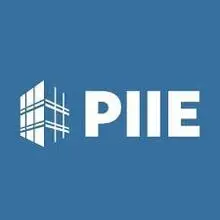The Peterson Institute for International Economics (PIIE) is an independent nonprofit, nonpartisan research organization dedicated to strengthening prosperity and human welfare in the global economy through expert analysis and practical policy solutions.
The Institute is committed to rigorous, intellectually open, and indepth study and discussion. It attempts to anticipate emerging issues and present ideas in useful, accessible formats, to inform and shape public debate. Its audience includes government officials and legislators, business and labor leaders, management and staff at international organizations, university-based scholars and their students, experts at other research institutions and nongovernmental organizations, the media, and the public at large.
Our staff of about 70 includes 20 senior researchers, as well as 15 nonresident fellows, all distinguished for their combination of research expertise and policy experience. The Institute's agenda emphasizes international trade and investment, international finance and exchange rates, macroeconomic policy and crisis response, globalization and human welfare, and studies of key economic regions. Institute staff have unique expertise on the major economies with special reference to Brazil, China, the European Union, Japan, Korea, and the Middle East, as well as the United States itself and its neighbors Canada and Mexico.
CURRENT PRIORITIES
Current priorities include:
- improving macroeconomic policy after the global financial crisis, including fiscal rules and monetary tools;
- truth telling about the benefits of globalization and the costs of closed economies;
- the rebalancing of China's growth model and its impact on the world economy;
- globalization, inequality, and labor market adjustment;
- exchange rate interventions and reform of the international monetary system;
- regional trade agreements and multinational investment rule, notably the Comprehensive and Progressive Agreement for the Trans-Pacific Partnership (CPTPP) and the United States-Mexico-Canada Agreement (USMCA);
- sustainable growth models for Europe, Japan, and the United States;
- financial stability, including cost-benefit analysis of global regulation; and
- macroeconomic and trade aspects of decarbonization.
INTELLECTUAL IMPACT
Our research has provided some of the intellectual foundations for many major international policy initiatives of the past four decades:
- reforms of the International Monetary Fund (IMF), initiated by the G-20 in 2009–10;
- creation of the TPP initiative and the Asia Pacific Economic Cooperation (APEC) forum;
- quantitative easing and adapting monetary policy to a low interest rate world;
- reform of US sanctions policy;
- initiation and implementation of the Strategic and Economic Dialogue between the United States and China;
- the North American Free Trade Agreement (NAFTA) and other US free trade agreements (notably with Korea);
- adoption of international banking standards and broader financial regulatory reforms;
- countercyclical fiscal policy and increased female labor force participation in Japan;
- increasingly realistic approaches to sovereign debt; and
- linking fiscal stimulus and structural reform in the euro area.
Other influential analyses have addressed:
- economic reform in the European Union, China, the former communist countries, and Latin America (including what became known as the Washington Consensus);
- foreign direct investment into and out of the United States;
- the sources, benefits, and growth of services trade;
- the impact on wages of trade liberalization;
- reconsidering the political economy of the "Resource Curse" and the "Middle Income Trap;"
- the links between gender, management, and diversity and corporate profitability; and
- measures of currency manipulation.
Contact Information
comments@piie.com
Contact Email
+1.202.328.9000
Contact Phone
Location
1750 Massachusetts Avenue
20036 Washington, D.C. , United States



